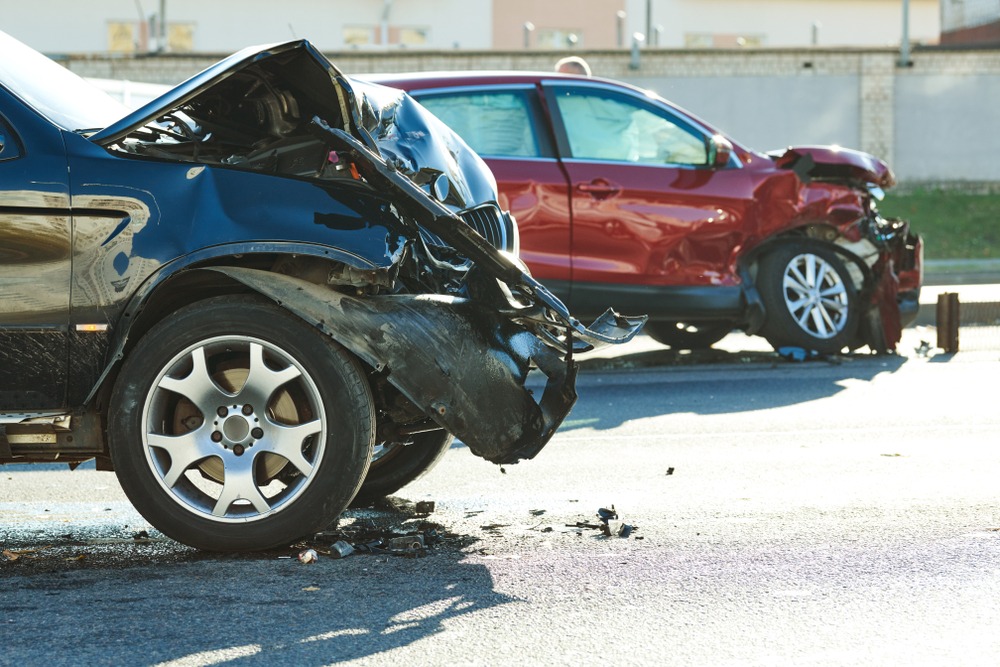St. Petersburg is about 15 miles southeast of Clearwater and 20 miles southwest of Tampa. According to Florida car accident statistics, Florida’s deadliest road is US 19, which runs through the middle of St. Petersburg. The area with the most accidents runs from 54th Avenue North to Queensboro Avenue South. Not only does this stretch of 4.7 miles see the most accidents, but it also has on average 20 fatal accidents per year. All total, that’s 4.3 traffic accidents per mile.
The Pinellas County area sees a lot of traffic, mostly because the roads leading to the Sunshine Skyway Bridge include many beaches. It also features many restaurants, businesses, and nightlife. And, of course, you have St. Pete Beach, which is almost as popular as Clearwater Beach. Many people also pick St. Petersburg as a vacation destination, including Floridians who will spend a week or two at the beaches near St. Petersburg.
If you have traveled in the St. Petersburg area, there’s a good chance you may have been in an accident or lost a loved one in a car collision due to someone else’s negligence. Contact a St. Petersburg car accident attorney today for a free consultation and find out how we can help you.
St. Petersburg Area Car Accident Statistics
The statistics mentioned above are only part of the overall number of car crashes in St. Petersburg. Additional accident statistics for the area include:
- An average of 14,719 crashes per year.
- An average of 116 fatalities per year.
- An average of 10,563 injuries per year.
Of these crashes:
- An average of 353 wrecks per year involve alcohol. Of these wrecks, there were an average of 20 fatalities and 137 injuries.
- An average of 31 wrecks per year involved drugs. Of these, there were an average of seven fatalities and 30 injuries.
Of the total number of accidents in the St. Petersburg area, an average of 512 per year involves motorcycles. Within the average of motorcycle accidents, there were 26 fatalities and 451 injuries. Accidents involving pedestrians average 504 each year. Of those, St. Petersburg saw 38 fatalities and 428 injuries per year. Bicyclist-involved crashes average 571 per year. Out of the 571 accidents, there was an average of 6.5 fatalities and 537 injuries.
St. Petersburg, like Clearwater, sees a lot of commercial vehicles either traveling through the area or stopping at the many businesses in the area. St. Petersburg sees more commercial traffic than Clearwater as trucks get off the highways to make their deliveries. These commercial vehicles then drive through the city to catch the highway to cross the Sunshine Skyway Bridge. The St. Petersburg area saw an average of 1,348 accidents involving commercial vehicles. Those wrecks have an average of five fatalities and 317 injuries.
Do I Need a St. Petersburg Car Accident Lawyer?
While many people try to settle their accident claims themselves, we do not recommend representing yourself in a personal injury and property damage claim. Even if you pay your premiums on time and have been with your insurance company for many years, loyalty does not guarantee a fair settlement. Insurance companies are designed to collect premiums, not payout claims.
If your policy does not cover all your damages, you either have to settle with far less money or you have to sue the at-fault driver’s insurance. Since insurance companies are in business to make money, they like to look for any reason to deny your claim. They also like to offer you the least amount possible.
A small amount may not cover your medical expenses from a car accident in Florida — and you are most likely entitled to other damages and medical expenses. Insurance companies twist words to fit a denial or make a low settlement offer.
With all the accidents in the state of Florida, insurance companies know which attorneys will take a case to court and which will not. When you have an attorney with trial experience negotiating on your behalf, an insurance company will be less likely to want to go to court. The reason is the costs of losing a court battle with someone with severe injuries will cost the insurance company more in the end. When you have the right attorney, an insurance company will be more inclined to settle a personal injury claim for a fair and reasonable amount in the first place.
St. Petersburg Auto Accident Statistics
Source: https://www.flhsmv.gov/
Accident Injuries and Recovering Damages in St. Petersburg
The compensation you can recover from a vehicle accident in Florida depends on several factors, including the severity of your injuries. If doctors expect your injuries to heal within a few months or less, you will most likely get economic damages. However, if doctors believe your injuries will cause long-term or permanent disabilities, such as traumatic brain injuries or spinal cord injuries, you could recover economic damages and non-economic damages.
Economic damages have a monetary value, including medical expenses, lost income, loss of future earning capacity, and death-related expenses. Non-economic damages do not have a monetary value. They include pain and suffering, loss of quality of life, consortium, loss of companionship, inconvenience, loss of use of a body part or bodily function, amputation, excessive scarring, and disfigurement.
You could also recover punitive damages. However, the court must order punitive damages, and you must prove that the defendant’s actions were grossly negligent or intentional to recover them. It takes a bit longer to obtain punitive damages, as the court only considers this after the trial for compensatory damages concludes. Ask your attorney if punitive damages could be awarded in your case. Seeking damages to punish someone could be part of fair compensation, especially if you lost a loved one from an accident in Pinellas County.
Recovering Damages After Losing a Family Member

Accidents occur frequently in Florida. When you have lost a loved one in a St. Petersburg car accident, you could recover any medical expenses from the accident until death. St. Petersburg injury lawyers can also help you to recover:
- Death-related expenses include funeral and burial expenses, cremation expenses, and certain probate court expenses. If you retain a probate attorney, you could also recover some probate attorney’s fees.
- Loss of future earning capacity for any income your loved one might have earned until the time they would have normally retired.
- Loss of income up until the time of death
You could also recover non-economic damages, including:
- Emotional distress
- Loss of consortium and companionship
- Loss of quality of life
If you suffered injuries or lost a loved one in a car accident, contact a St. Petersburg car accident lawyer today for a free case evaluation.






